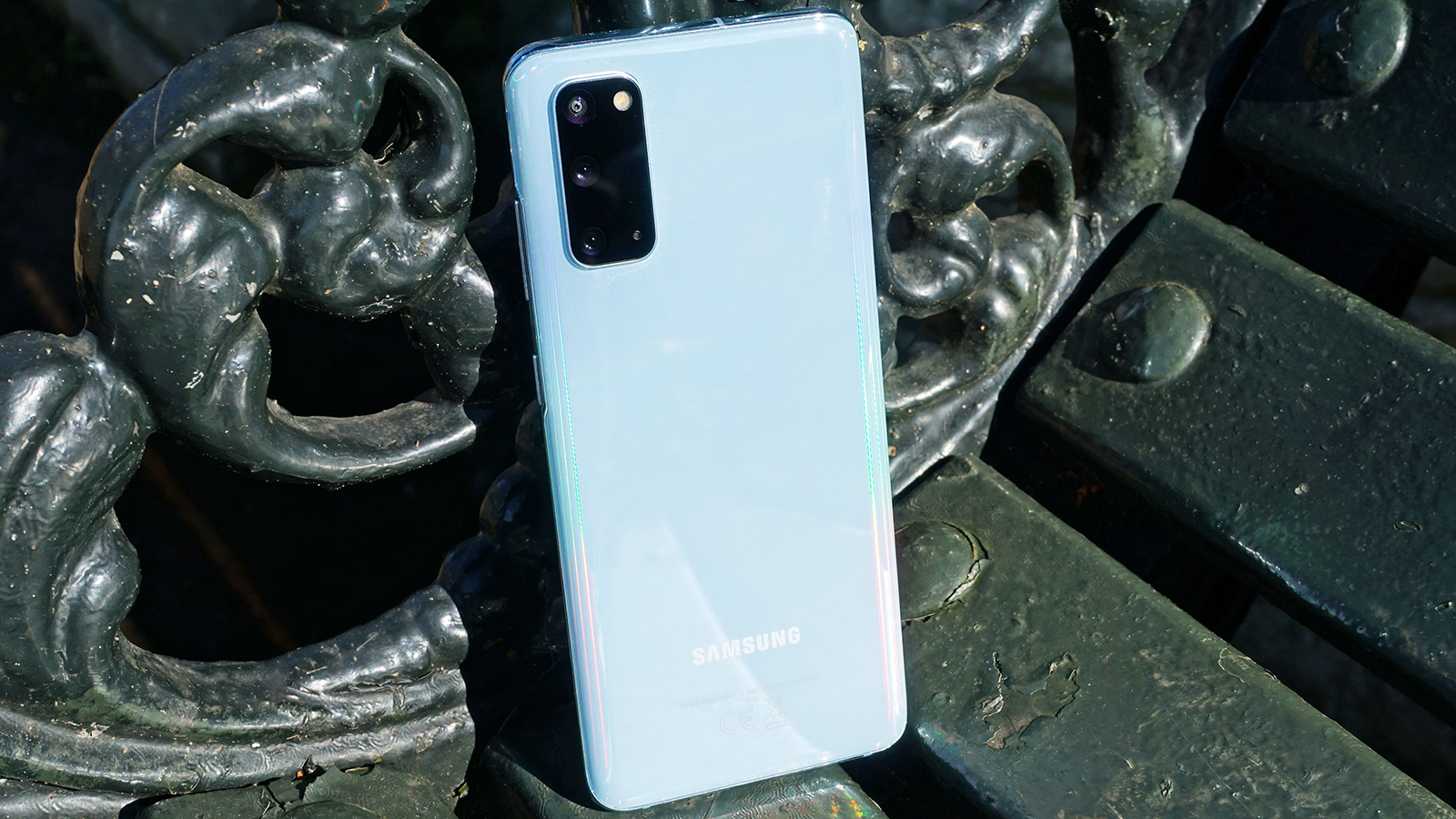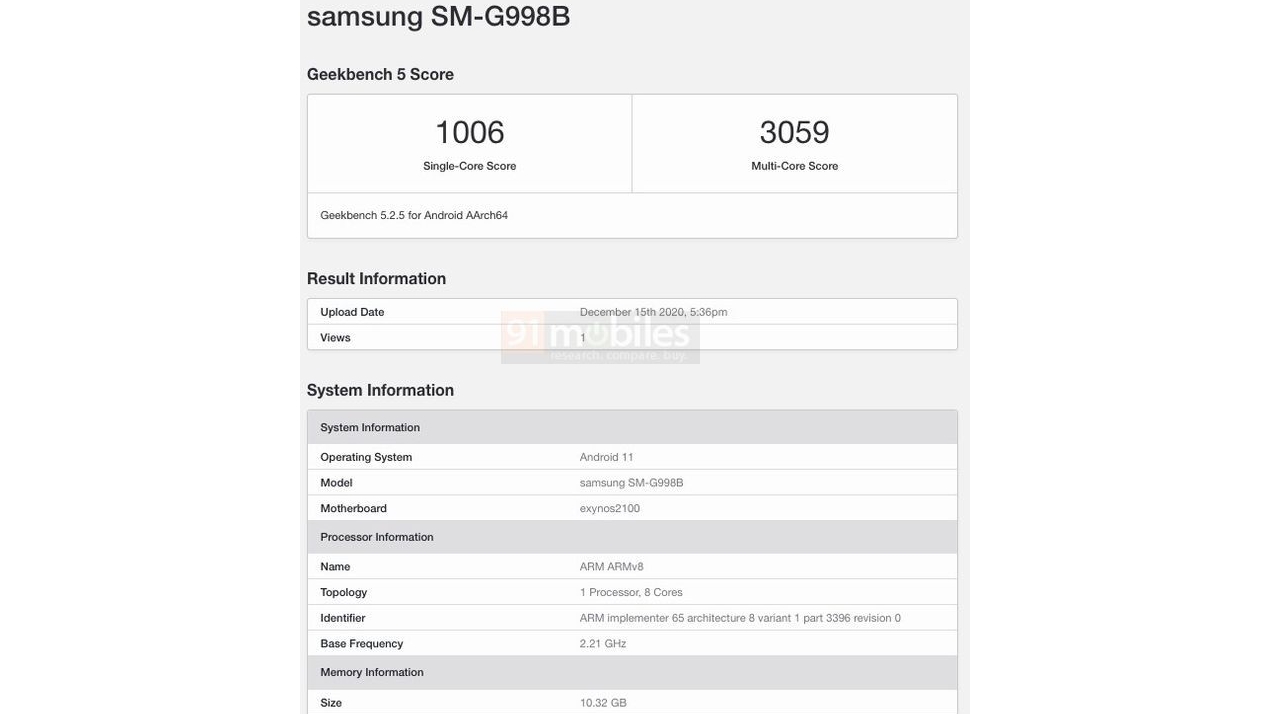Samsung Galaxy S21 Ultra benchmarked with high specs and low scores
Using the Exynos 2100

The Samsung Galaxy S21 Ultra is sure to be one of the most powerful phones of 2021, but how powerful it is might depend on whether you end up with an Exynos 2100 chipset (which will likely power the phone in much of the world) or a Snapdragon 888 version (expected in the US), as a benchmark shows the former delivering fairly unimpressive scores.
Spotted by 91Mobiles, a Geekbench 5 listing for the Samsung Galaxy S21 Ultra shows a single-core score of 1,006 and a multi-core one of 3,059. That’s with an Exynos 2100 chipset, and both of those scores are lower than we’ve previously seen in a benchmark for the Samsung Galaxy S21 Plus with a Snapdragon 888.
They’re also generally not all that impressive. While the single-core score is higher than any phone in the Geekbench 5 Android chart, the multi-core result is lower than a few, such as the OnePlus 8 Pro, which isn’t great for a newer phone with a newer chipset.
- Check out the best Samsung phones
- Read our full Samsung Galaxy Note 20 Ultra review
- The Samsung Galaxy Z Fold 3 is probably also on the way

And while we’re reluctant to read too much into early benchmarks, these scores are in line with another Exynos 2100 benchmark.
But this should still be a very speedy chipset overall, and it’s listed here alongside a healthy 12GB of RAM and Android 11, so the Samsung Galaxy S21 Ultra’s specs should be up to scratch, even if its benchmark performance isn’t.
We should know for sure soon, as leaks suggest the Samsung Galaxy S21 range will be announced on January 14, so the wait should almost be over.
Get daily insight, inspiration and deals in your inbox
Sign up for breaking news, reviews, opinion, top tech deals, and more.
James is a freelance phones, tablets and wearables writer and sub-editor at TechRadar. He has a love for everything ‘smart’, from watches to lights, and can often be found arguing with AI assistants or drowning in the latest apps. James also contributes to 3G.co.uk, 4G.co.uk and 5G.co.uk and has written for T3, Digital Camera World, Clarity Media and others, with work on the web, in print and on TV.